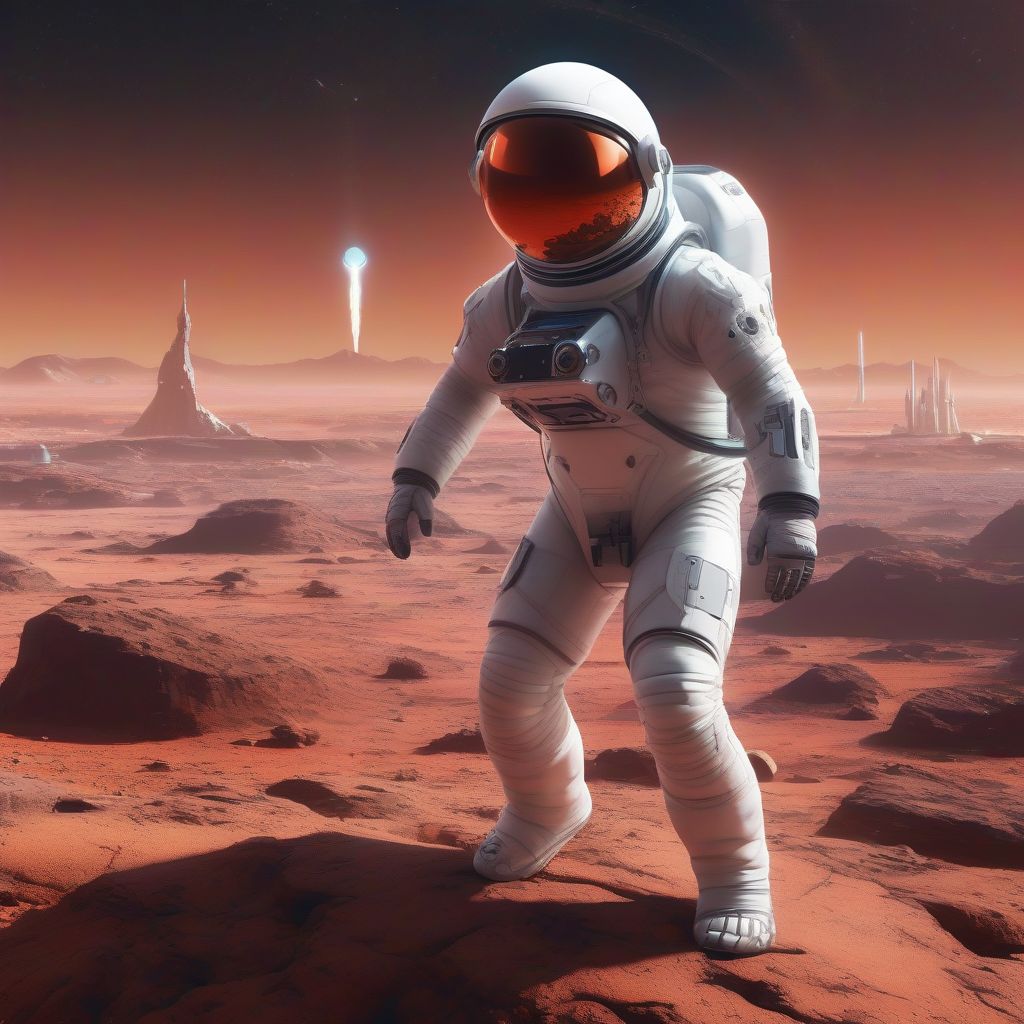“Earth is the cradle of humanity, but mankind cannot stay in the cradle forever.” – Konstantin Tsiolkovsky, a pioneer of astronautics, painted a future where humanity would inevitably outgrow its home planet. Today, this dream feels closer than ever. Space exploration is no longer about fleeting visits; it’s about establishing a permanent human presence beyond Earth. But what does this future hold?
Why Venture into the Cosmos?
The drive to explore is deeply ingrained in our DNA. We are a species of explorers, constantly seeking new frontiers. But beyond curiosity, several compelling reasons fuel our spacefaring ambitions:
- Resource Depletion: Earth’s resources are finite. Space exploration opens up access to a wealth of raw materials, from precious metals on asteroids to solar energy harnessed directly from the sun.
- Environmental Concerns: Climate change poses a significant threat to our planet. Establishing off-world settlements could act as a safeguard for humanity, ensuring our survival in the face of catastrophic events.
- Scientific Advancement: Space exploration drives innovation and technological breakthroughs. From communication satellites to medical imaging, many technologies we rely on today stemmed from space exploration research.
The Final Frontier: Where Are We Headed?
While the vastness of space offers endless possibilities, several destinations have emerged as prime candidates for human colonization:
Mars: The Red Planet Beckons
Mars has captured our imagination for centuries, and for a good reason. This terrestrial planet holds the most significant potential for terraforming, the process of transforming a planet to resemble Earth.
Challenges:
- Thin Atmosphere: Mars’ atmosphere is thin, offering little protection from solar radiation.
- Extreme Temperatures: The average temperature on Mars is a frigid -63 degrees Celsius.
- Resource Extraction: Setting up self-sustaining colonies will require developing technologies to extract water and other vital resources from Martian soil.
Opportunities:
- Water Ice: Scientists have discovered vast deposits of water ice beneath the Martian surface, a crucial resource for future colonists.
- Similar Day-Night Cycle: Mars’ day-night cycle is surprisingly similar to Earth’s, which could ease the transition for humans.
The Moon: Our Celestial Neighbor
The Moon, a mere stone’s throw away (cosmically speaking), offers a more practical stepping stone for establishing a human presence in space.
Challenges:
- Limited Resources: The Moon lacks an atmosphere and has limited water resources.
- Micrometeoroids: The Moon’s surface is constantly bombarded by micrometeoroids, posing a danger to structures and equipment.
Opportunities:
- Launchpad for Exploration: Its proximity to Earth makes the Moon an ideal location for building infrastructure to support further space exploration.
- Scientific Research: The Moon’s pristine environment offers a unique platform for conducting scientific research in fields like astronomy and geology.
Beyond Mars and the Moon: Looking Further into the Abyss
While Mars and the Moon represent the most immediate targets, ambitious plans are in motion to explore even further afield:
- Asteroid Mining: Asteroids are rich in precious metals and resources, making them an attractive target for future mining operations.
- Europa and Enceladus: These moons of Jupiter and Saturn, respectively, are believed to harbor vast subsurface oceans, potentially teeming with life.
- Exoplanets: The discovery of thousands of planets beyond our solar system has fueled speculation about one day reaching these distant worlds.
 Space Exploration and the Future of Human Colonization
Space Exploration and the Future of Human Colonization
Overcoming the Hurdles: What Challenges Lie Ahead?
Space exploration and colonization are fraught with challenges:
- Technological Advancements: We need to develop sustainable life support systems, advanced propulsion technology for faster interstellar travel, and effective radiation shielding.
- Ethical Considerations: Colonizing other planets raises ethical questions about our impact on potential extraterrestrial life and the responsible use of resources.
- Funding and Collaboration: Space exploration requires significant financial investment and international collaboration to pool resources and expertise.
A Future Amongst the Stars
Despite the challenges, the human spirit of exploration is relentless. As we stand on the cusp of a new era of space exploration, the possibilities seem limitless. The future of human colonization may involve:
- Self-Sustaining Colonies: Future settlements will need to be self-sufficient, growing food, generating energy, and recycling resources with minimal impact on the environment.
- Space-Based Manufacturing: The unique environment of space could revolutionize manufacturing, allowing for the creation of new materials and products impossible to produce on Earth.
- A Multi-Planetary Species: In the distant future, humanity may become a multi-planetary species, with colonies scattered across the solar system and perhaps even beyond.
Space exploration and colonization are endeavors that push the boundaries of human ingenuity and determination. It’s a journey filled with challenges, risks, and unimaginable rewards. As we look up at the stars, we are reminded that the future of humanity may lie not on this pale blue dot, but amongst the infinite expanse of the cosmos.
[amazon bestseller=”space exploration”]
What are your thoughts on the future of space exploration? Share your thoughts in the comments below!
